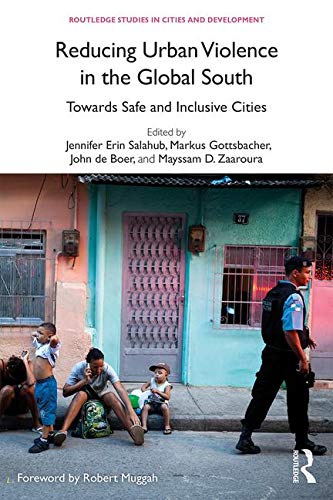

Most ebook files are in PDF format, so you can easily read them using various software such as Foxit Reader or directly on the Google Chrome browser.
Some ebook files are released by publishers in other formats such as .awz, .mobi, .epub, .fb2, etc. You may need to install specific software to read these formats on mobile/PC, such as Calibre.
Please read the tutorial at this link: https://ebookbell.com/faq
We offer FREE conversion to the popular formats you request; however, this may take some time. Therefore, right after payment, please email us, and we will try to provide the service as quickly as possible.
For some exceptional file formats or broken links (if any), please refrain from opening any disputes. Instead, email us first, and we will try to assist within a maximum of 6 hours.
EbookBell Team

5.0
78 reviewsReducing Urban Violence in the Global Southseeks to identify the drivers of urban violence in the cities of the Global South and how they relate to and interact with poverty and inequalities. Drawing on the findings of an ambitious 5-year, 15-project research programme supported by Canada’s International Development Research Centre and the UK’s Department for International Development, the book explores what works, and what doesn't, to prevent and reduce violence in urban centres. Cities in developing countries are often seen as key drivers of economic growth, but they are often also the sites of extreme violence, poverty, and inequality. The research in this book was developed and conducted by researchers from the Global South, who work and live in the countries studied; it challenges many of the assumptions from the Global North about how poverty, violence, and inequalities interact in urban spaces. In so doing, the book demonstrates that accepted understandings of the causes of and solutions to urban violence developed in the Global North should not be imported into the Global South without careful consideration of local dynamics and contexts.Reducing Urban Violence in the Global Southconcludes by considering the broader implications for policy and practice, offering recommendations for improving interventions to make cities safer and more inclusive. The fresh perspectives and insights offered by this book will be useful to scholars and students of development and urban violence, as well as to practitioners and policymakers working on urban violence reduction programmes.